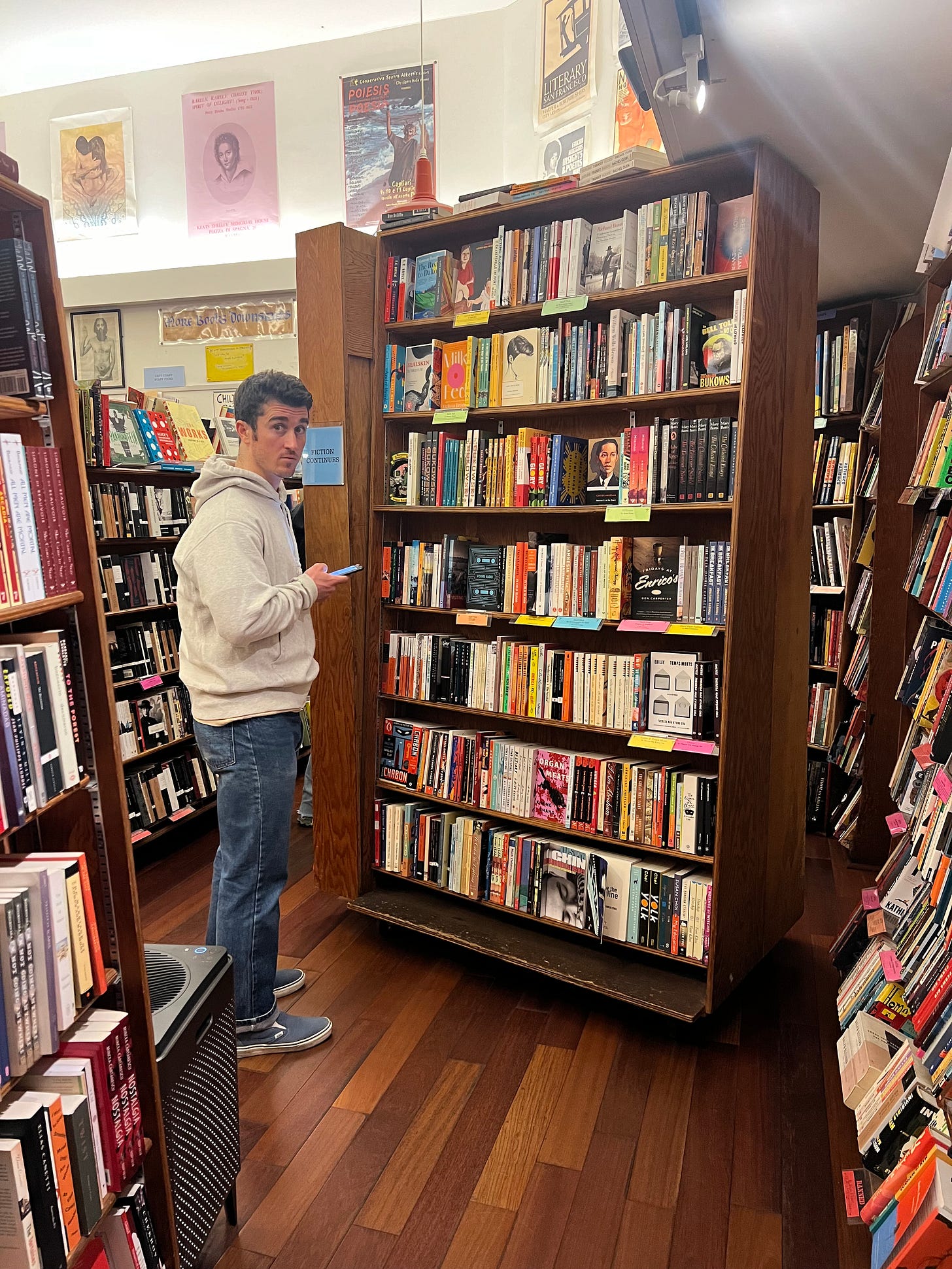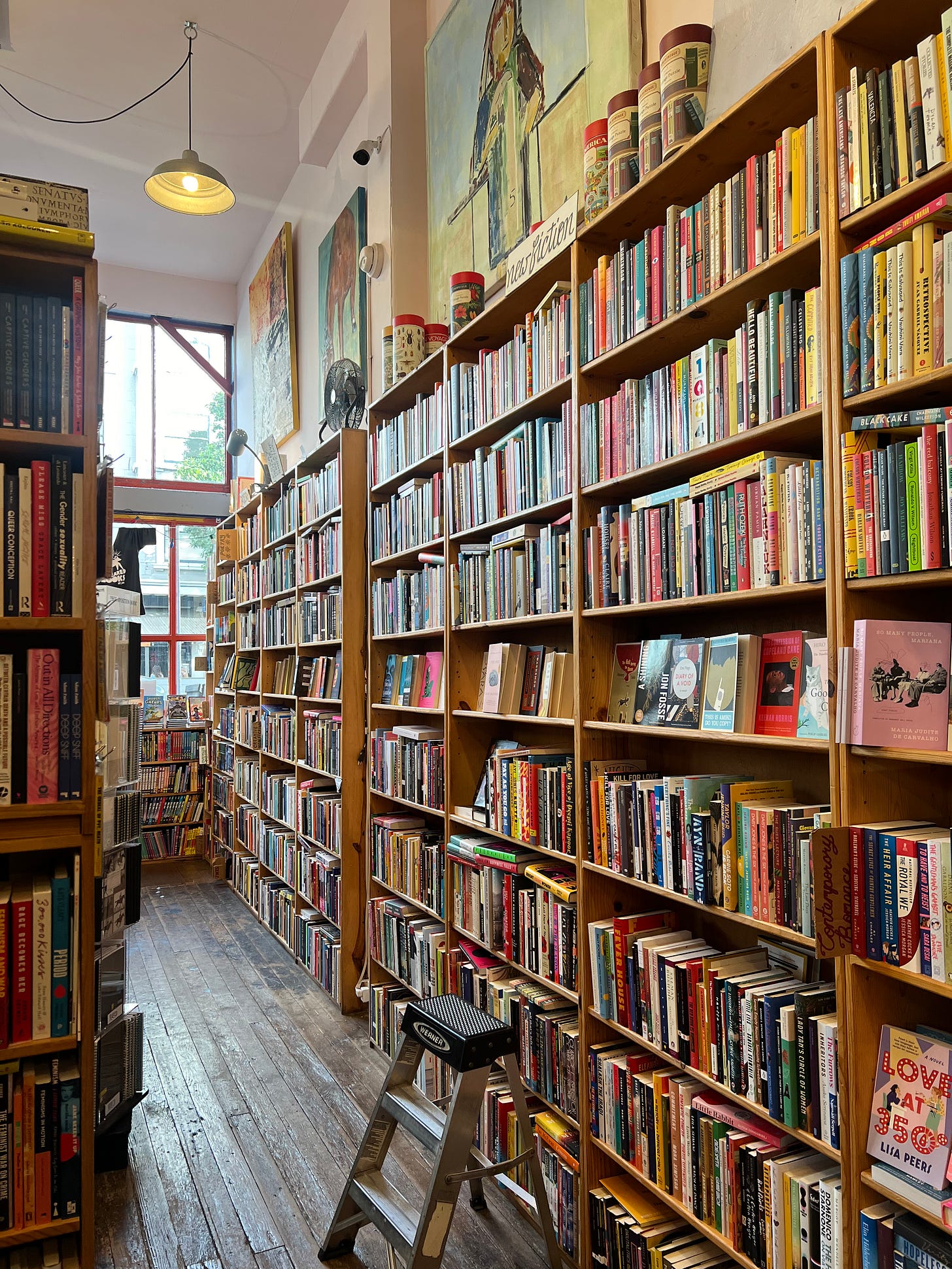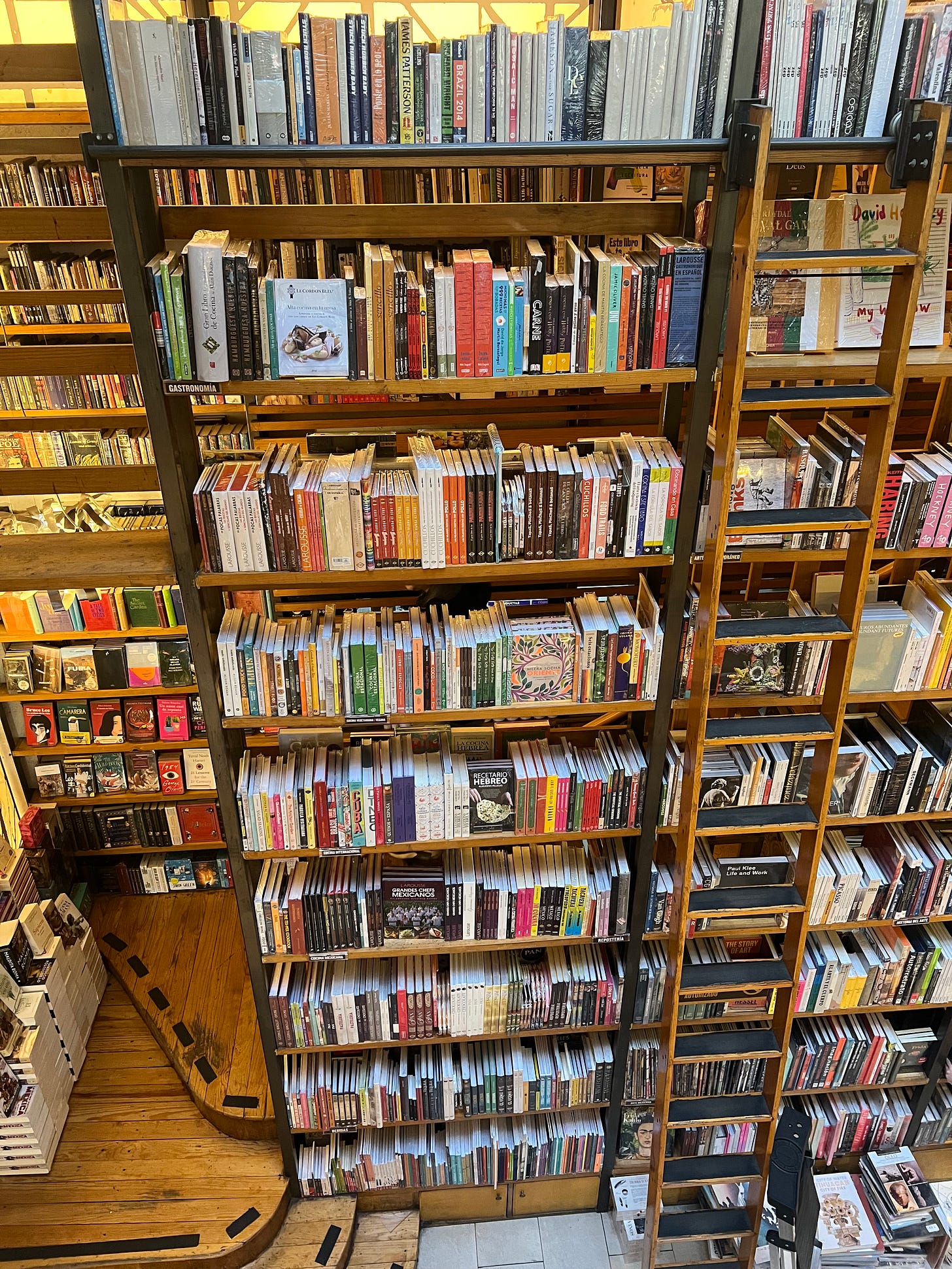GREAT EXPECTATIONS
What expectations do we have when reading leisurely? Perhaps we expect to be swept away, brought to tears, to learn, to understand ourselves, to laugh—whatever. There are a million reasons, all good. And yet, time and time again, I see would-be readers stumble and balk over “getting it.”
Recently, a friend and I were both reading The Three Body Problem. As we chatted throughout our tandem reads, our understanding (or lack thereof) of the science came up several times. “I can’t decide whether I liked it or not,” my friend said. “I liked how captivating it was, but I didn’t like feeling like an idiot for not understanding all the physics.”
Another friend recently read The Doloriad, which I recommended in one of my earlier posts. I loved it. She DMed me the following: “OK, does The Doloriad become clear with what it’s about? lol I’m feeling a bit dumb and lost. Only on page 34.” My cousin on the same book: “I mean, it was just totally over my head.”
I think you’re catching my drift by now, but just in case, here’s a personal experience. I recently read I Love Dick, by Chris Kraus. This is a book that showed up on the Atlantic’s list of Great American Novels and is “Widely considered to be the most important feminist novel of the past two decades,” though who is doing the wide considering, I don’t know (the quote is from the Goodreads descriptions). I have read some of Chris’ work before and have enjoyed it– and I enjoyed parts of this book too. But there were large swaths of text in this novel/memoir/essay collection during which I could be heard sighing and frustratedly flipping through pages. Still could not tell you why Chris spent several sections describing an art installation or talking about a journalist who fell for a rebel leader in the Amazon (or something? I can’t even keep it straight). It (seemingly) had nothing to do with anything. I felt like an idiot, and I was annoyed.
Now look, reading some totally obscure, complicated, needlessly obfuscated tome is rarely fun, I get it. If there is no way in, so to speak, you’re likely to give up banging on the doors and slink away. I also am a firm believer in reading what you like to read, and that it should bring you enjoyment. But we get so hung up on “getting it.” Our internal monologues run away with us: "Did I ‘get it’? Did I understand what the author was trying to say? My friends liked the book; other people seem to like the book; what am I missing?”
The problem here, as I see it, is not whether or not you “get it” (“it” being the plot or message or ‘je ne sais quoi’ of whatever you’re reading), but why we feel so desperate to get it. Why do we act as though it’s a personal failure when we don’t fully grasp what the author was trying to do?
THE MORAL FAILURE OF IT
While it sounds absurd to say out loud, somewhere along the line, we have come to regard reading as a moral virtue. The logic, although faulty in practice, tracks in theory. It goes something like this: books contain information, and possessing more information makes you smart, so by the transitive property, reading = smart, and smart = good. Either subconsciously or consciously, we believe that reading makes you a good and smart person.
Anecdotally, I’ll say that I frequently receive compliments for how much I read, or have people express that they wish they could read like me. While it’s nice to be flattered, I always find it sort of ridiculous, because what does that even mean? I love to read, it’s my favorite hobby. But my fondness for reading doesn’t make me a good person. We don’t compliment photographers for how many pictures they take or congratulate gardeners for the number of flowers they’ve planted, and rarely do we correlate these things with moral values.
But reading is like that. People think it makes you good and smart, and therefore, failing to fully connect with a book, feeling confused by a book, or just not getting it feels like a testament to something unseemly about our character; like perhaps we’re not the people we thought ourselves to be.
That sounds dramatic, I know. I don’t mean to say that not understanding a book ruins our lives. Rather, it’s the type of thing that makes us second-guess ourselves and compare ourselves to the person who raved about it– an obviously brilliant and great person– who must know more than we do. They must be smarter and better than us. Our lack has never been made so appallingly clear.
The result, then, is that we read less, or we don’t read books like that anymore, or we stick to books that we know we like, can finish quickly, and can, without a doubt, explain at the next party we go to. Doubt makes us quit and keeps us confined to the same well-worn path of reading we’ve been on. We avert our eyes and willingly, though with plausible deniability, avoid change. We stay the same.
THE UNACCEPTABLE WASTE OF PRECIOUS TIME
Another very reasonable argument for why we feel we have no other choice but to “get it” when we read is because we’ll be god damned if we waste any of our time. We are in the age of optimization, baby, and we’ve been told repeatedly by everyone who’s ever achieved anything in this life that we need to be successful, and the only way to do that is to be harder, better, faster, stronger at everything from work to relationships to hobbies to sleeping. Every second wasted is a second you’ll never get back; a second closer to death.
I am being hyperbolic, but am I, really? Our time certainly is valuable, and it’s true that to the best of our collective knowledge, we only get one go at our time on earth. A large (or loud) portion of the population seems to believe that we can 10x that time by being as efficient with it as possible. Or I guess like, if we focus hard enough on optimizing our lives, maybe we’ll forget that we are being slowly eroded by the sands of time.
Reading, too, has become an area for optimization. Why not? Reading makes us good, so we should be doing as much of it as possible, is what some influencer somewhere is probably saying. You may have seen articles like “How to read 100 books a year” or “Tips for speed reading to read more books than ever.” Speed reading is fine if you’re cramming for an exam, but speed reading so you can optimize your hobby? Feels dark.
In a less manic, more relatable sense, wasting our time with things that aren’t meaningful to us doesn’t make sense. But there’s also the fact that if everything is always perfect, then everything’s always the same, and we’ve effectively rendered our world flat with no deviations whatsoever. The reality is that life has ups and downs, thank god. Not every day is going to be spectacular, not every meal is going to be delicious, and not every book is going to be the best you’ve ever read. The corny old adage is that variety is the spice of life. But really, what is there for us to enjoy, what becomes meaningful and special if everything we experience is always “the best it’s ever been”?
Sure, if you hate the book you’re reading, ditch it. Life is too short. But know that just because you didn’t get it, it doesn’t mean it was a waste of time. Maybe you read again down the road and it finally clicks. Maybe you talk to some friends about it, and the piece that eluded you during your own reading begins to take shape. Hell, maybe you never get it and were just mildly bemused or entertained. If you ask me, that’s how it’s supposed to work some of the time.
WHAT’S IT ALL FOR?
And so, we are back to the question we started with, or a version of it: What do you read for? What do you want to get out of it? There is a place for all kinds here. But ultimately, this (books, but also life) is a “choose your own adventure” situation. Do you read simply for pleasure, for the ephemeral escape that comes with a good story?
Do you read to be exposed to new ideas, to think in a new way, or to be confronted with a story that is outside the scope of possibility in your life or in the world? Getting it is only a part of the picture here. What matters more is that you’re open to the experience of something new, of something that partially or totally bewilders you. If a book feels over your head, you’re probably reading a book that is different than what you normally read. You don’t have to get it to make the reading worthwhile.
Am I making sense? What I am trying to say is this: reading should not be a box-checking exercise where you read books just because everyone else has, so you can brag about the number of books you read in a year, or because you “think you should.” Try to avoid these myopic traps.
There is a long view here, one where every book you read isn’t incredible and mind-blowing and exceptional– and yet, you expand your taste, think critically and differently, are challenged, and, if you’re lucky, are surprised and delighted by what you find. Then again, maybe your long view involves parking your ass on the couch and simply checking out from the world for a bit. Whatever your reason, let “getting it” go, and enjoy the adventure.

Books of the moment:
✨Heads up! I’m using my Bookshop affiliate link for all titles recommended in this newsletter. If you buy them through these links, I might earn a commission.✨
📖 Currently reading:
Cheap Therapist Says You’re Insane by Parker Young
📚Recently finished:
Vagablonde by Anna Dorn, 4/5 stars
I Love Dick by Chris Kraus, 3/5 stars
👉🏼You should read: No Tense Like the Present: Novels That Embrace the Immediate
💌 Email me book recs and other literary thoughts at emilygatesjohnson@gmail.com
🛍 Shop all Point of Departure recs (and more!) from my digital bookstore here.









I firmly believe high school English wasted a lot of potentially amazing books on all of us -- I can't do classics either. And maybe high school English scarred us all into thinking there were deeper meanings we were supposed to "get" every time we read and, more annoyingly, that what the author was trying to do matters more than how we felt about it or what we took from it. I ditch books (and movies and TV shows) I don't get all the time. Maybe sometimes what we get or don't get is more a matter of what we like and don't like? A preference instead of an ability? My hot take: if you don't get it, move on. Maybe you're not challenging yourself, but there are infinite other things you could read instead and enjoy a hell of a lot more. At least you're still reading :)
Stellar article. All too often do people in the reading community apply pressure to themselves and others to ‘get’ certain books. That breeds gate keeping and prevents new readers from falling in love with reading.